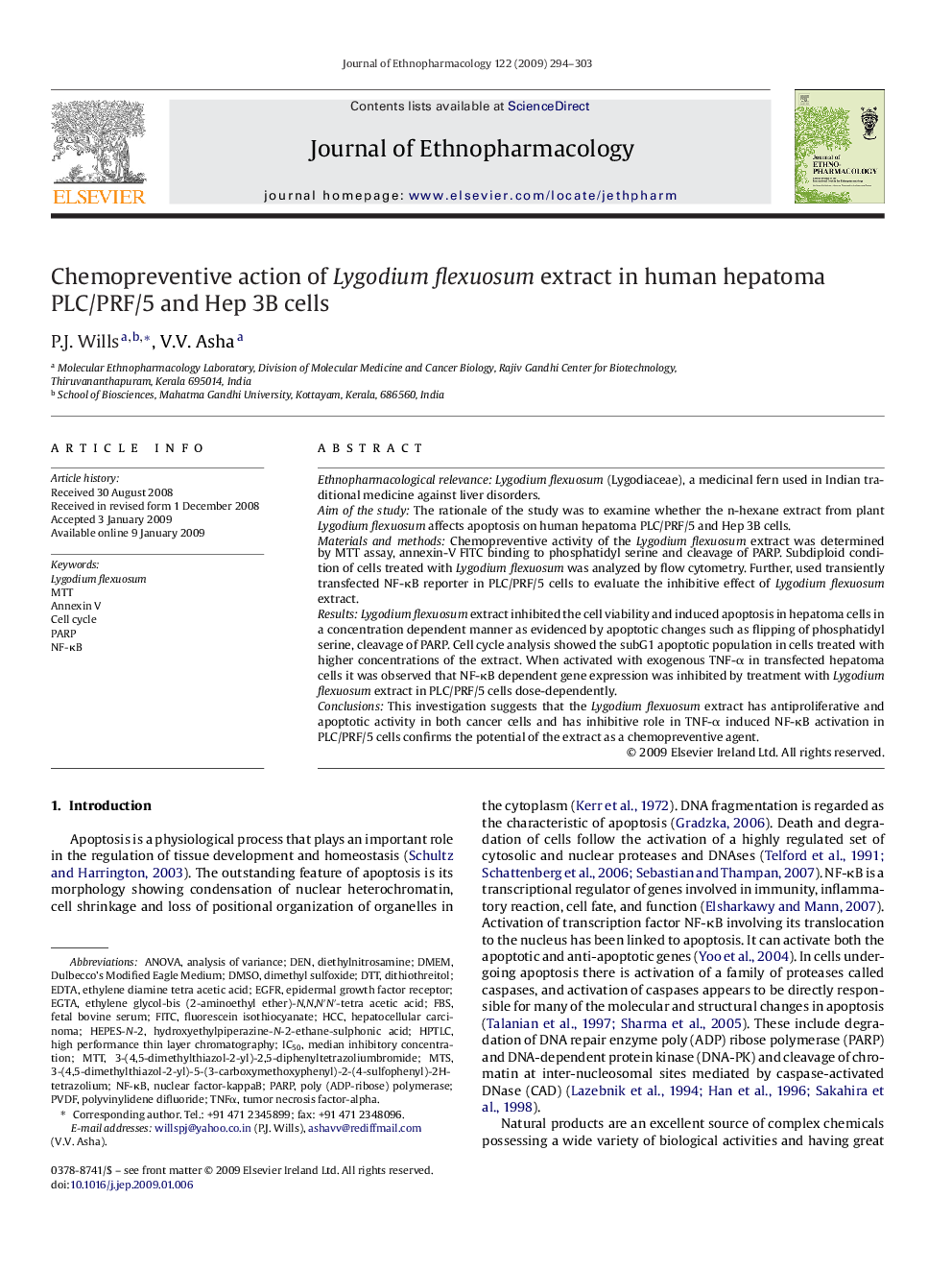| Article ID | Journal | Published Year | Pages | File Type |
|---|---|---|---|---|
| 2547010 | Journal of Ethnopharmacology | 2009 | 10 Pages |
Ethnopharmacological relevanceLygodium flexuosum (Lygodiaceae), a medicinal fern used in Indian traditional medicine against liver disorders.Aim of the studyThe rationale of the study was to examine whether the n-hexane extract from plant Lygodium flexuosum affects apoptosis on human hepatoma PLC/PRF/5 and Hep 3B cells.Materials and methodsChemopreventive activity of the Lygodium flexuosum extract was determined by MTT assay, annexin-V FITC binding to phosphatidyl serine and cleavage of PARP. Subdiploid condition of cells treated with Lygodium flexuosum was analyzed by flow cytometry. Further, used transiently transfected NF-κB reporter in PLC/PRF/5 cells to evaluate the inhibitive effect of Lygodium flexuosum extract.ResultsLygodium flexuosum extract inhibited the cell viability and induced apoptosis in hepatoma cells in a concentration dependent manner as evidenced by apoptotic changes such as flipping of phosphatidyl serine, cleavage of PARP. Cell cycle analysis showed the subG1 apoptotic population in cells treated with higher concentrations of the extract. When activated with exogenous TNF-α in transfected hepatoma cells it was observed that NF-κB dependent gene expression was inhibited by treatment with Lygodium flexuosum extract in PLC/PRF/5 cells dose-dependently.ConclusionsThis investigation suggests that the Lygodium flexuosum extract has antiproliferative and apoptotic activity in both cancer cells and has inhibitive role in TNF-α induced NF-κB activation in PLC/PRF/5 cells confirms the potential of the extract as a chemopreventive agent.
